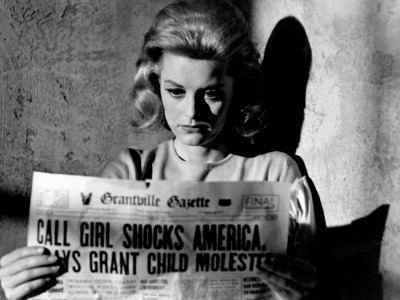
Park Row
With Gene Evans, Mary Welch, Bela Kovacs.
US, 1952, 35mm, black & white, 83 min.
Print source: HFA
Park Row counts among Fuller’s least known yet most personal films, an affectionate and vivid tribute to the pioneering days of American journalism that is colored by his own clear nostalgia for his youthful experience rising up from “printer’s devil,” on the same eponymous street, to teenage crime reporter. Fuller’s lifelong passion for history inspired his exhaustive research into the life and drama of the colorful figures responsible for the birth of modern American journalism on Park Row. Chafed by Zanuck’s insistence on a musical version of the film, Fuller went out on his own, largely self-financing his film and spending exorbitantly on a stunningly detailed building used for reconstructing Park Row itself. Fuller’s evident love for the journalistic enterprise is earnest and infectious and everywhere imbues Park Row with a spirit of optimism and pride in journalistic integrity that sets it far apart from the darkly cynical vision of the press typically seen in Hollywood cinema (including Scandal Sheet, Phil Karlson’s adaptation of Fuller’s novel The Dark Page) and the bleaker worldview expressed across Fuller’s other films. Working with talented cinematographer John L. Russell (Moonrise, Psycho), Fuller continued to push his bold, graphic and physical style, defining a kind of eccentric framing and bravura camera movement that would become major signatures of his cinema. And thus a barroom brawl gives way to a scene of cinematic sublimity, a beautifully extended shot that follows an elaborately choreographed fight winding its way down the historic street, capturing not only the rousing fisticuffs but also the rough texture and jagged rhythms of turn of late 19th century New York City.




































